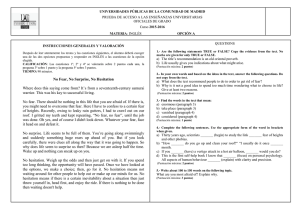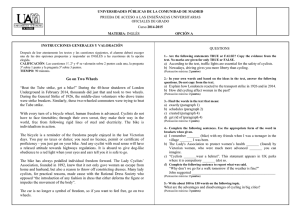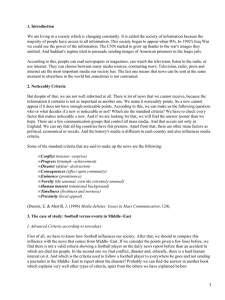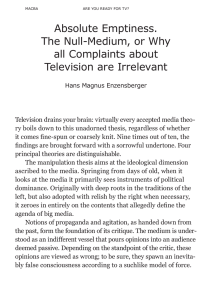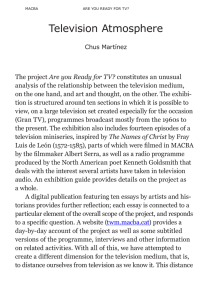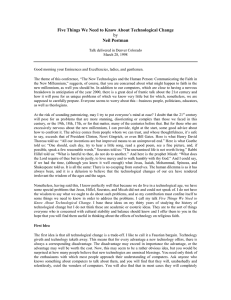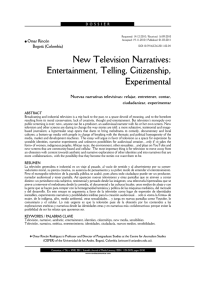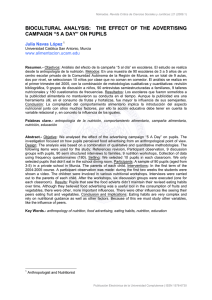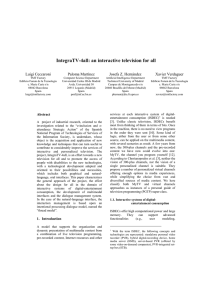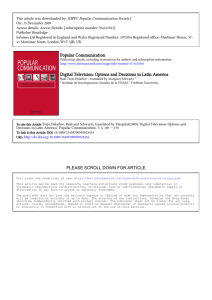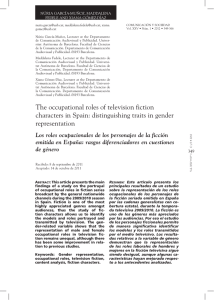Thank heavens for television My wife and I have a small grocery
Anuncio
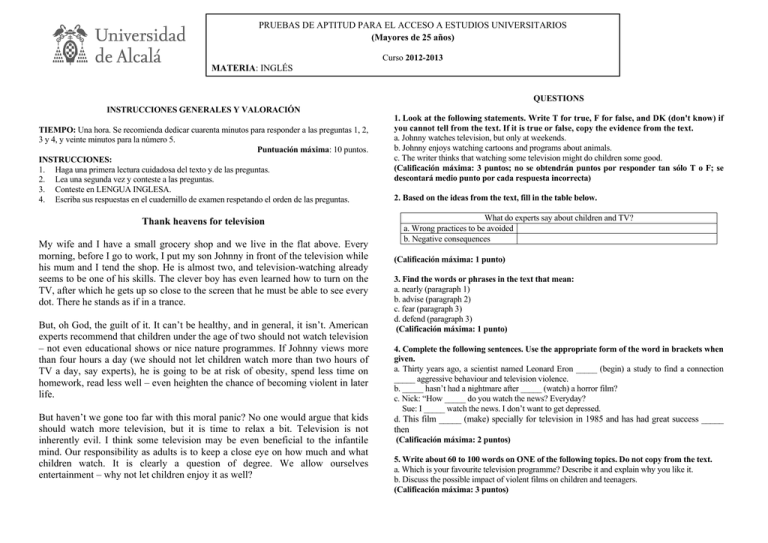
PRUEBAS DE APTITUD PARA EL ACCESO A ESTUDIOS UNIVERSITARIOS (Mayores de 25 años) Curso 2012-2013 MATERIA: INGLÉS QUESTIONS INSTRUCCIONES GENERALES Y VALORACIÓN TIEMPO: Una hora. Se recomienda dedicar cuarenta minutos para responder a las preguntas 1, 2, 3 y 4, y veinte minutos para la número 5. Puntuación máxima: 10 puntos. INSTRUCCIONES: 1. Haga una primera lectura cuidadosa del texto y de las preguntas. 2. Lea una segunda vez y conteste a las preguntas. 3. Conteste en LENGUA INGLESA. 4. Escriba sus respuestas en el cuadernillo de examen respetando el orden de las preguntas. Thank heavens for television My wife and I have a small grocery shop and we live in the flat above. Every morning, before I go to work, I put my son Johnny in front of the television while his mum and I tend the shop. He is almost two, and television-watching already seems to be one of his skills. The clever boy has even learned how to turn on the TV, after which he gets up so close to the screen that he must be able to see every dot. There he stands as if in a trance. But, oh God, the guilt of it. It can’t be healthy, and in general, it isn’t. American experts recommend that children under the age of two should not watch television – not even educational shows or nice nature programmes. If Johnny views more than four hours a day (we should not let children watch more than two hours of TV a day, say experts), he is going to be at risk of obesity, spend less time on homework, read less well – even heighten the chance of becoming violent in later life. But haven’t we gone too far with this moral panic? No one would argue that kids should watch more television, but it is time to relax a bit. Television is not inherently evil. I think some television may be even beneficial to the infantile mind. Our responsibility as adults is to keep a close eye on how much and what children watch. It is clearly a question of degree. We allow ourselves entertainment – why not let children enjoy it as well? 1. Look at the following statements. Write T for true, F for false, and DK (don't know) if you cannot tell from the text. If it is true or false, copy the evidence from the text. a. Johnny watches television, but only at weekends. b. Johnny enjoys watching cartoons and programs about animals. c. The writer thinks that watching some television might do children some good. (Calificación máxima: 3 puntos; no se obtendrán puntos por responder tan sólo T o F; se descontará medio punto por cada respuesta incorrecta) 2. Based on the ideas from the text, fill in the table below. What do experts say about children and TV? a. Wrong practices to be avoided b. Negative consequences (Calificación máxima: 1 punto) 3. Find the words or phrases in the text that mean: a. nearly (paragraph 1) b. advise (paragraph 2) c. fear (paragraph 3) d. defend (paragraph 3) (Calificación máxima: 1 punto) 4. Complete the following sentences. Use the appropriate form of the word in brackets when given. a. Thirty years ago, a scientist named Leonard Eron _____ (begin) a study to find a connection _____ aggressive behaviour and television violence. b. _____ hasn’t had a nightmare after _____ (watch) a horror film? c. Nick: “How _____ do you watch the news? Everyday? Sue: I _____ watch the news. I don’t want to get depressed. d. This film _____ (make) specially for television in 1985 and has had great success _____ then (Calificación máxima: 2 puntos) 5. Write about 60 to 100 words on ONE of the following topics. Do not copy from the text. a. Which is your favourite television programme? Describe it and explain why you like it. b. Discuss the possible impact of violent films on children and teenagers. (Calificación máxima: 3 puntos)
